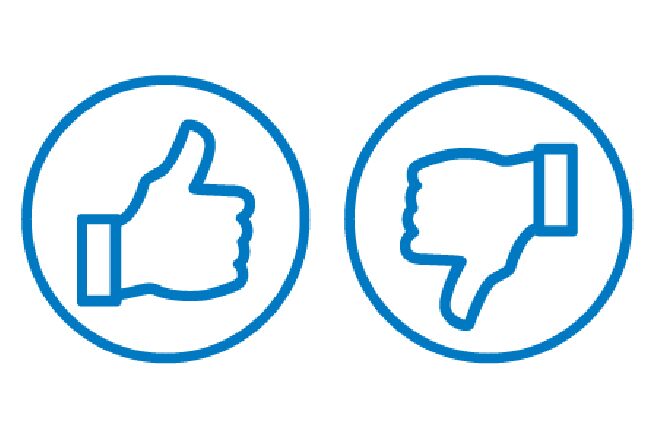Note: A member’s benefits booklet identifies if the plan is regulated by the Department of Managed Health Care or the Department of Insurance. In accordance with state requirement, Anthem publishes the notices of language assistance supporting our members.
CA Dept. of Insurance
Curious to know what all this says? We would be too. Here’s the English version:
No Cost Language Services. You can get an interpreter. You can get documents read to you and some sent to you in your language. For help, call us at the number listed on your ID card or 1-888-254-2721. For more help call the CA Dept. of Insurance at 1-800-927-4357. (TTY/TDD: 711)
Other Languages
Spanish
Servicios lingüísticos sin costo. Puede tener un intérprete. Puede solicitar que le lean los documentos y algunos puede recibirlos en su idioma. Para obtener ayuda, llámenos al número que figura en su tarjeta de identificación o al 1-888-254-2721. Para obtener ayuda adicional, llame al Departamento de Seguros de California al 1-800-927-4357. (TTY/TDD: 711)
Arabic
قرأُ يتم تقديم خدمات اللغة دون مقابل .يمكنك الاستعانة بمترجم .ويمكنك المطالبة بأن ت لك بعض المستندات وأن رسل ُي بعضھا بلغتك .للحصول على المساعدة، للحصول على مزيد من المساعدة، رجى .1- 888-254-2721 اتصل بنا على الرقم الموجود على بطاقة التعريف الخاصة بك أو على الرقم ُي الاتصال بإدارة (711 :TDD/TTY) .1- 800-927-4357 كاليفورنيا للتأمين على الرقم
Armenian
Թարգմանչական անվճար ծառայություններ: Մենք կարող ենք Ձեզ թարգմանչի ծառայություններ առաջարկել Կարող ենք տրամադրել ինչ-որ մեկին, ով փաստաթղթերը կկարդա Ձեզ համար և կուղարկի դրանք Ձեր լեզվով: Օգնություն ստանալու համար զանգահարեք մեզ Ձեզ ID քարտի վրա նշված հեռախոսահամարով կամ 1-888-254-2721 համարով: Լրացուցիչ օգնության համար զանգահարեք Կալիֆոռնիայի ապահովագրության նախարարություն հետևյալ հեռախոսահամարով՝ 1-800-927-4357: (TTY/TDD: 711)
Chinese
免費語言服務。您能獲得免費的譯員。您能聽到以您的語言讀出的文件內容,也能獲得以您的語言而寫的部分文件。 如需協助,請撥打您的 ID 卡上的號碼或者 1-888-254-2721 聯絡我們。如需更多協助,請撥打 1-800-927-4357 聯絡 CA Dept. of Insurance。(TTY/TDD: 711)
Farsi
خدمات رايگان زبانی .می می توانيد يک مترجم شفاھی بگيريد . توانيد بخواھيد اسناد را برای شما بخوانند و برخی اسناد نيز به زبان خودتان برايتان ارسال شود .برای دريافت کمک، از طريق شماره فھرست شده در کا شناسايی رت 25 -2721 تان و يا از طريق 4-8881- با ما تماس بگيريد .برای دريافت . 1- 800-927-4357 کمکھای بيشتر با اداره بيمه کاليفرنيا به شماره (711 :TDD/TTY) تماس بگيريد
Hindi
िबना लागत की भाषा सेवाएँ। आप दुभािषया प्रात कर सकते ह। आप दतावेज़ पढ़वा सकते ह और कुछ दतावेज़ आपको आपकी भाषा म भेजे जा सकते ह। मदद के िलए, हम अपने ID काडर् पर सूचीबद्ध नंबर पर या 1-888-254-2721 पर कॉल कर। अिधक मदद के िलए 1-800-927-4357 पर CA बीमा िवभाग कोकॉल कर। (TTY/TDD: 711)
Hmong
Tsis Xam Tus Nqi Cov Kev Pab Cuam Ntsig Txog Hom Lus. Koj muaj peev xwm tau txais ib tus neeg txhais lus. Koj muaj peev xwm tau txais cov ntaub ntawv nyeem ua koj hom lus rau koj mloog thiab yuav xa ib co ntaub ntawv sau ua koj hom lus tuaj rau koj. Txog rau kev pab, hu rau peb tus nab npawb xov tooj teev tseg cia nyob rau ntawm koj daim ID los sis 1-888-254-2721. Txog rau kev pab ntxiv, hu xov tooj rau Pab Kas Phais Lub Chaw Ua Hauj Lwm CA tus xov tooj 1-800-927-4357. (TTY/TDD: 711)
Japanese
無料言語サービス。通訳サービスを受けられます。希望する言語で文書を読み上げたり、文書を送るサービスも 可能です。支援を受けるには、IDカードに記載された番号、または 1-888-254-2721 にお電話ください。支援の 詳細は、カリフォルニア州保険局(1-800-927-4357)にお電話ください。(TTY/TDD: 711)
Khmer
េសវាភាសាឥតគិតៃថល។ អនកអាចទទួលអនកបកែរបមាន ក់។ អនកអាចឲយេគអានឯកសារេផសងៗជូនអនក និងេផញើឯកសារជូនអនកជាភាសារបស់អនក។ េដើមបីទទួលជំនួយ សូមេហៅ ទូរស័ពទមកេយើងតាមេលខែដលបានរាយេនៅេលើប័ណណ ID របស់អនក ឬក៏េលខ 1-888-254-2721។ េដើមបីទទួលជំនួយបែនថម សូមេហៅទូរស័ពទេទៅ CA Dept. of Insurance តាមេលខ 1-800-927-4357។(TTY/TDD: 711)
Korean
무료 언어 서비스. 번역사를 이용하실 수 있습니다. 귀하의 언어로 녹음되어 작성된 문서를 받아보실 수 있습니다. 도움을 받으시려면 ID 카드에 기재된 번호 또는 1-888-254-2721로 전화하십시오. 다른 도움이 필요하시면 1-800-927-4357로 보험 CA 부서에 문의 주십시오. (TTY/TDD: 711)
Punjabi
ਿਬਨਾਂ ਿਕਸੇ ਲਾਗਤ ਦੇ ਭਾਸ਼ਾ ਸੇਵਾਵਾਂ। ਤੁਸ ਇੱ ਕ ਦੁਭਾਸ਼ੀਆ ਪ੍ਰਾਪਤ ਕਰ ਸਕਦੇ ਹੋ। ਕੋਈ ਤੁਹਾ ੰਨੂ ਦਸਤਾਵਜ਼ੇ ਪੜ੍ਹ ਕੇ ਸੁਣਾ ਸਕਦਾ ਹੈ ਅਤੇ ਕੁਝ ਤੁਹਾਡੀ ਭਾਸ਼ਾ ਿਵੱ ਚ ਤੁਹਾ ੰਨੂ ਭੇਜੇ ਜਾ ਸਕਦੇ ਹਨ। ਮਦਦ ਲਈ, ਸਾ ੰਨੂ ਤੁਹਾਡੇ ਆਈਡੀ ਕਾਰਡ ਉੱਤੇ ਸੂਚੀਬੱ ਧ ੰਨਬਰ ਜਾਂ 1-888-254-2721 ਤੇ ਕਾਲ ਕਰੋ। ਿਜ਼ਆਦਾ ਮਦਦ ਲਈ, ਸੀਏ ਿਡਪਾਰਟਮਟ ਔਫ ਇਨਸ਼ੋਰਸ ੰਨੂ 1-800-927-4357 ਤੇ ਕਾਲ ਕਰੋ।(TTY/TDD: 711)
Russian
Бесплатные языковые услуги. Вы можете получить услуги устного переводчика. Вам могут прочитать документы или направить некоторые из них на вашем языке. Для получения помощи звоните нам по телефону, указанному на вашей идентификационной карте, или по номеру 1-888-254-2721. Для получения дополнительной помощи звоните в Департамент страхования штата Калифорния по номеру 1-800-927-4357. (TTY/TDD: 711)
Tagalog
Mga Libreng Serbisyo para sa Wika. Maaari kayong kumuha ng interpreter. Maaari ninyong ipabasa ang mga dokumento at ipadala ang ilan sa mga ito sa inyo sa wikang ginagamit ninyo. Para sa tulong, tawagan kami sa numerong nakalista sa inyong ID card o sa 1-888-254-2721. Para sa higit pang tulong, tawagan ang CA Dept. of Insurance sa 1-800-927-4357. (TTY/TDD: 711)
Thai
ไมม่คี่าบริการเกี่ยวกับภาษา ท่านสามารถขอใช ้บริการล่ามได ้ท่านสามารถขอให ้เจ ้าหน้าทอี่่านเอกสารได ้ท่านฟังและเอกสาร บางอย่างจะส่งถึงท่านโดยใช ้ภาษาของท่าน หากต ้องการความช่วยเหลอื โปรดโทรหาเราตามหมายเลขที่ระบุอยู่บนบัตร ประจําตัวของท่านหรือที่หมายเลข 1-888-254-2721 หากต ้องการความช่วยเหลือเพิ่มเตมิ โปรดโทรติดต่อแผนก CA Dept. of Insurance ที่หมายเลข 1-800-927-4357 (TTY/TDD: 711)
Vietnamese
Các Dịch Vụ Ngôn Ngữ Miễn Phí. Quý vị có thể có thông dịch viên. Quý vị có thể yêu cầu đọc tài liệu cho quý vị nghe và yêu cầu gửi một số tài liệu bằng ngôn ngữ của quý vị cho quý vị. Để được trợ giúp, hãy gọi cho số được ghi trên thẻ ID của quý vị hoặc số 1-888-254-2721. Để được giúp đỡ thêm, hãy gọi cho Sở Bảo Hiểm California (California Department of Insurance) theo số 1-800-927-4357. (TTY/TDD: 711)
CA Dept. of Managed Health Care
Curious to know what all this says? We would be too. Here’s the English version:
IMPORTANT: Can you read this letter? If not, we can have somebody help you read it. You may also be able to get this letter written in your language. For free help, please call right away at 1-888-254-2721. (TTY/TDD: 711)
Other Languages
Spanish
IMPORTANTE: ¿Puede leer esta carta? De lo contrario, podemos hacer que alguien lo ayude a leerla. También puede recibir esta carta escrita en su idioma. Para obtener ayuda gratuita, llame de inmediato al 1-888-254-2721. (TTY/TDD: 711)
Arabic
اً مهم :هل يمكنك قراءة هذه الرسالة؟ إذا لم تستطع، فيمكننا الاستعانة بشخص ما ليساعدك على قراءتها .كما يمكنك اً أيض الحصول على هذا الخطاب مكتوب بلغتك . اً للحصول على المساعدة المجانية، ُيرجى الاتصال 711 ( .1-888-254-2721 فور بالرقم :TTD/TTY)
Armenian
ՈՒՇԱԴՐՈՒԹՅՈՒՆ. Կարողանո՞ւմ եք ընթերցել այս նամակը: Եթե ոչ, մենք կարող ենք տրամադրել ինչ-որ մեկին, ով կօգնի Ձեզ՝ կարդալ այն: Կարող ենք նաև այս նամակը Ձեզ գրավոր տարբերակով տրամադրել: Անվճար օգնություն ստանալու համար կարող եք անհապաղ զանգահարել 1-888-254-2721 հեռախոսահամարով: (TTY/TDD: 711)
Chinese
重要事項:您能看懂這封信函嗎?如果您看不懂,我們能夠找人協助您。您有可能可以獲得以您的語言而寫的本信 函。如需免費協助,請立即撥打1-888-254-2721。(TTY/TDD: 711)
Farsi
مهم :آيا میتوانيد اين نامه را بخوانيد؟ اگر نمیتوانيد، میتوانيم شخصی را به شما معرفی کنيم تا در خواندن اين نامه شما را کمک کند .همچنين میتوانيد اين . تماس بگيريد 1-888-254-2721 نامه را به صورت مکتوب به زبان خودتان دريافت کنيد .برای دريافت کمک رايگان، همين حالا با شماره (711 :TTD/TTY)
Hindi
महत्वपूर्ण: क्या आप यह पत्र पढ़ सकते हैं? अगर नह ीं, तो हम आपको इसे पढ़ने में मदद करने के लिए ककसी को उपिब्ध करा सकते हैं। आप यह पत्र अपनी भाषा में लिखवाने में भी सक्षम हो सकते हैं। ननिःशुल्क मदद के लिए, कृपया 1-888-254-2721 पर तुरींत कॉि करें। (TTY/TDD: 711)
Hmong
TSEEM CEEB: Koj puas muaj peev xwm nyeem tau daim ntawv no? Yog hais tias koj nyeem tsis tau, peb muaj peev xwm cia lwm tus pab nyeem rau koj mloog. Tsis tas li ntawd tej zaum koj kuj tseem yuav tau txais daim ntawv no sau ua koj hom lus thiab. Txog rau kev pab dawb, thov hu tam sim no rau tus xov tooj 1-888-254-2721. (TTY/TDD: 711)
Japanese
重要:この書簡を読めますか?もし読めない場合には、内容を理解するための支援を受けることができます。また、この書簡を希望 する言語で書いたものを入手することもできます。次の番号にいますぐ電話して、無料支援を受けてください。 1-888-254-2721 (TTY/TDD: 711)
Khmer
សំខាន់៖ តតើអ្នកអាចអានលិខិតតនេះតេ? ត ើមិនអាចតេ ត ើងអាចឲ្យនរណាម្ននក់អានវាជូនអ្នក។ អ្នកក៏អាចេេួលលិខិតតនេះតោ សរតសរជាភាសារ ស់អ្នកផងដែរ។ តែើមបីេេួលជំនួ ឥតគិតថ្លៃ សូមតៅេូរស័ព្ទភាៃមៗតៅតលខ 1-888-254-2721។ (TTY/TDD: 711)
Korean
중요: 이 서신을 읽으실 수 있으십니까? 읽으실 수 없을 경우 도움을 드릴 사람이 있습니다. 귀하가 사용하는 언어로 쓰여진 서신을 받으실 수도 있습니다. 무료 도움을 받으시려면 즉시 1-888-254-2721로 전화하십시오. (TTY/TDD: 711)
Punjabi
ਮਹੱਤਵਪੂਰਨ: ਕੀ ਤੁਸੀਂ ਇਹ ਪੱਤਰ ਪੜ੍ਹ ਸਕਦੇ ਹੋ? ਜੇ ਨਹੀਂ, ਤ ਾਂ ਅਸੀਂ ਇਸ ਨੂੂੰ ਪੜ੍ਹਨ ਵਵੱਚ ਤੁਹ ਡੀ ਮਦਦ ਲਈ ਵਕਸੇ ਨੂੂੰ ਬੁਲ ਸਕਦ ਹ ਾਂ ਤੁਸੀਂ ਸ਼ ਇਦ ਪੱਤਰ ਨੂੂੰ ਆਪਣੀ ਭ ਸ਼ ਵਵੱਚ ਵਲਵਿਆ ਹੋਇਆ ਵਬੀ ਪਰ ਪਤ ਕਰ ਸਕਦੇ ਹੋ। ਮੁਫ਼ਤ ਮਦਦ ਲਈ, ਵਕਰਪ ਕਰਕੇ ਫੌਰਨ 1-888-254-2721 ਤੇ ਕ ਲ ਕਰੋ। (TTY/TDD: 711)
Russian
ВАЖНО. Можете ли вы прочитать данное письмо? Если нет, наш специалист поможет вам в этом. Вы также можете получить данное письмо на вашем языке. Для получения бесплатной помощи звоните по номеру 1-888-254-2721. (TTY/TDD: 711)
Tagalog
MAHALAGA: Nababasa ba ninyo ang liham na ito? Kung hindi, may taong maaaring tumulong sa inyo sa pagbasa nito. Maaari ninyo ring makuha ang liham na ito nang nakasulat sa ginagamit ninyong wika. Para sa libreng tulong, mangyaring tumawag kaagad sa 1-888-254-2721. (TTY/TDD: 711)
Thai
หมายเหตุส าคัญ: ทา่นสามารถอา่นจดหมายฉบับนหี้รอืไม่ หากทา่นไม่สามารถอา่นจดหมายฉบับนี้ เราสามารถจัดหาเจา้หนา้ทมี่าอา่นใหท้า่นฟังได้ ท่านยังอาจให้เจ้าหน้าที่ช่วยเขียนจดหมายในภาษาของท่านอีกด้วย หากต้องการความช่วยเหลือโดยไม่มีค่าใช้จ่าย โปรดโทรตดิตอ่ทหี่มายเลข 1-888-254-2721 (TTY/TDD: 711)
Vietnamese
QUAN TRỌNG: Quý vị có thể đọc thư này hay không? Nếu không, chúng tôi có thể bố trí người giúp quý vị đọc thư này. Quý vị cũng có thể nhận thư này bằng ngôn ngữ của quý vị. Để được giúp đỡ miễn phí, vui lòng gọi ngay số 1-888-254-2721. (TTY/TDD: 711)

